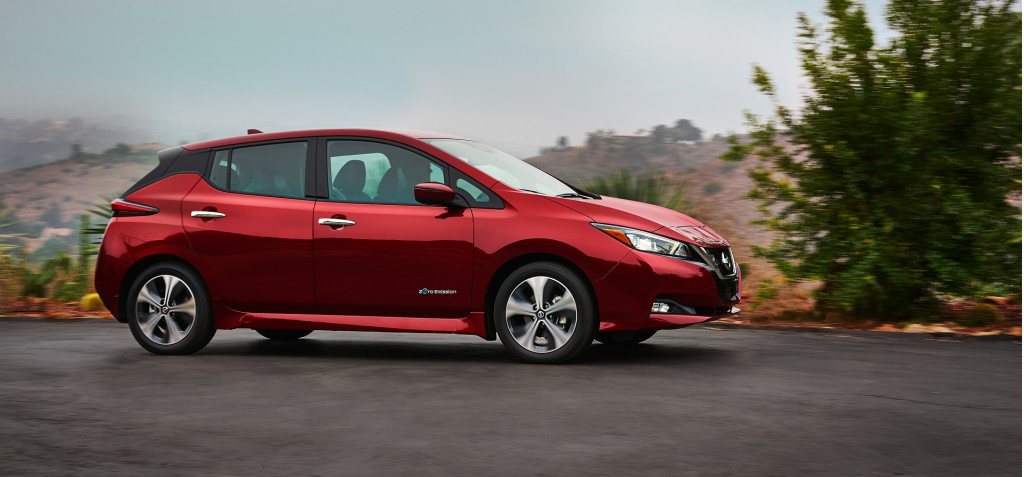
2018 Nissan Leaf
Almost seven years after modern electric cars entered the mass market, there are now more than two dozen battery-electric and plug-in hybrid models on sale in the U.S.
But that impressive number shouldn't disguise a fundamental truth about those vehicles: only about half of them are widely available nationwide.
Those include the BMW i3 electric car and i8 plug-in hybrid coupe, the Chevrolet Bolt EV and Volt plug-in hybrid, Nissan Leaf, and Tesla Model S and Model X.
DON'T MISS: U.S. plug-in electric car sales for Sep: Bolt EV hits new monthly high
That's better than the number in mid-2014, which was just three: Chevy Volt, Nissan Leaf, and Tesla Model S.
But while some are nominally available in all markets—the Toyota Prius Prime in particular—buyers have reported dealers who claim that they're not sold in the state or the region.
The Prime's predecessor, the Plug-In Hybrid model of the third-generation Prius Liftback, suffered from the same problem. It's not limited to Toyota, either.
[EDITOR'S NOTE: This article was originally published on August 11, 2014, when modern electric cars had been on the market just three and a half years. Three years later, confusion among buyers still exists as to what vehicles are available where. We have updated the article accordingly.]
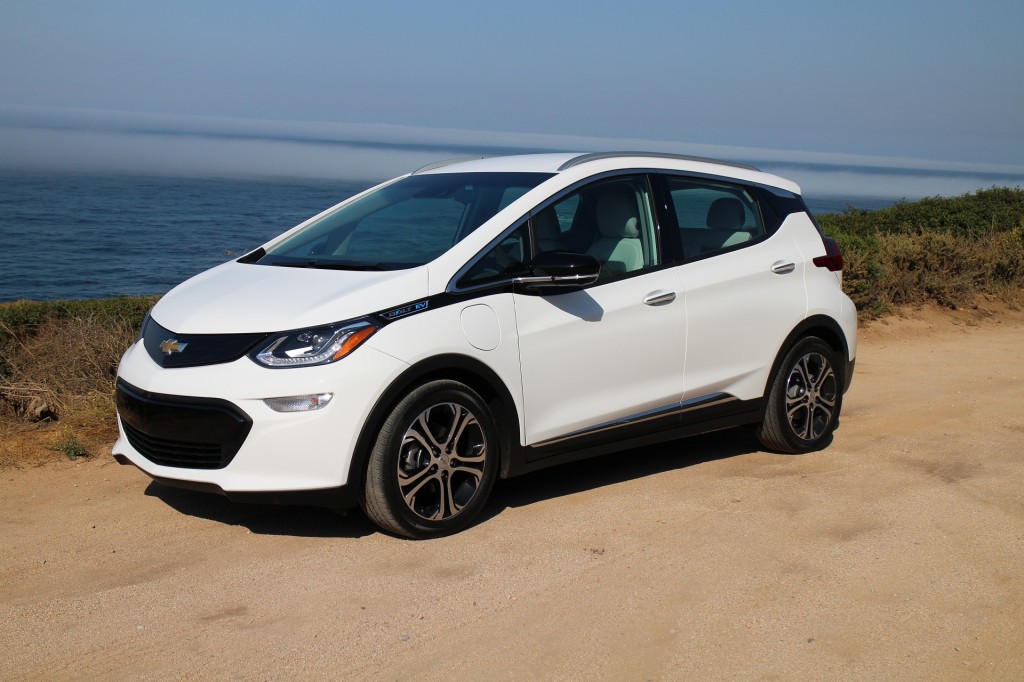
2017 Chevrolet Bolt EV, road test, California coastline, Sep 2016
Many others on the list are plug-in hybrids from luxury brands, including BMW, Mercedes-Benz, Porsche, and Volvo, that start at $50,000 or more. That's above the reach of the average car buyer.
Holding back the market
"The single biggest issue holding plug-in electric vehicles back at this point is lack of available product," said noted electric-car advocate Chelsea Sexton in 2014.
"It's counter-intuitive, but it's true--even as there are many other challenges to address."
READ THIS: Costco members now get GM Supplier Pricing on Chevy Bolt EV, Volt
And it's not clear that buyers who don't follow the market closely recognize the differences in availability among electric cars they may read about or see on television.
Plug-in cars on sale today fall into roughly three groups--though there are exceptions and qualifiers for many of them.
Volume or specialty car?
The Nissan Leaf, still the highest-selling electric car in the world after seven years, is available as a standard part of Nissan's product line at most dealers—and the same applies to the Bolt EV and Volt at roughly two-thirds of Chevy dealers.
Sales of both cars are clustered in certain areas, though, so while dealers may have one car on the lot, the Leaf or Volt may not be a high-volume item for some dealers.
![Tesla Store Los Angeles [photo: Misha Bruk / MBH Architects] Tesla Store Los Angeles [photo: Misha Bruk / MBH Architects]](https://images.hgmsites.net/lrg/tesla-store-los-angeles-photo-misha-bruk-mbh-architects_100449434_l.jpg)
Tesla Store Los Angeles [photo: Misha Bruk / MBH Architects]
In lightly populated regions and states with no incentives for plug-in cars, a car that plugs in is likely to be viewed by dealers as a specialty car more akin to a GT-R or a Corvette than a volume car.
Still, you can get a Leaf or a Volt or a Bolt EV from at least one dealer in all 50 states.
While the BMW i3 and i8 are available at all BMW dealers, fewer than 400 exist throughout the U.S., so it's possible that an actual i3 at a BMW dealer could be a fair distance away.
CHECK OUT: When Will Plug-In Electric SUVs And Crossovers Go On Sale? (Jun 2014)
As for the Tesla Model S and Model X, because buyers order the car online, it can be delivered in most states—though not Michigan, where legislative anti-Tesla sentiment runs strong.
Compliance cars
In 2014, the other end of the scale including so-called California compliance cars, whose makers sold them in very low numbers solely to meet the state's zero-emission vehicle requirements from 2012 through 2017.
Only two still exist: The Fiat 500e remains on sale only in California, though their very low used-car price means a few have been shipped to other states for eager buyers.
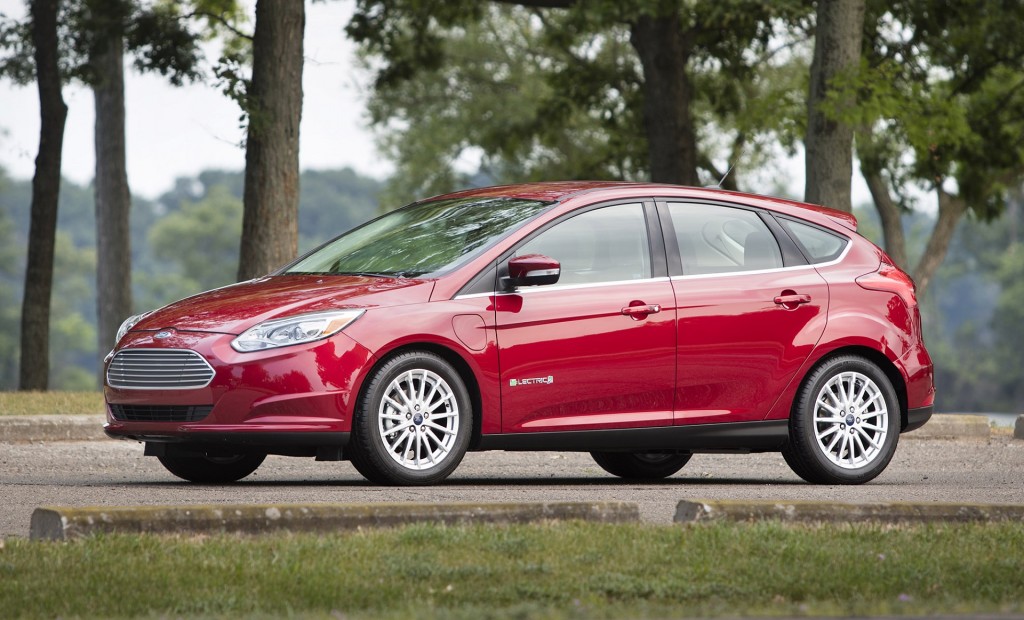
2017 Ford Focus Electric
The Ford Focus Electric, meanwhile, is at least nominally on sale in states outside those with California emission rules. But buyers again report uninterested dealers who've never seen one, and likely never will, in some of those areas.
The other three—the Chevy Spark EV, Honda Fit EV, and Toyota RAV4 EV—sold in their required numbers and are now out of production.
Low-volume, in-between cars
It's between those two poles—old-style compliance cars and true volume cars—that things get more complicated and qualified.
Vehicles whose makers refuse to break out their sales numbers, from the Kia Soul EV through the well-reviewed Chrysler Pacific Hybrid plug-in minivan, are arguably a more current version of compliance cars.
The common thread across the variety of circumstances for each individual model, however, is that many plug-in vehicles remain not widely available and sell in low volumes.
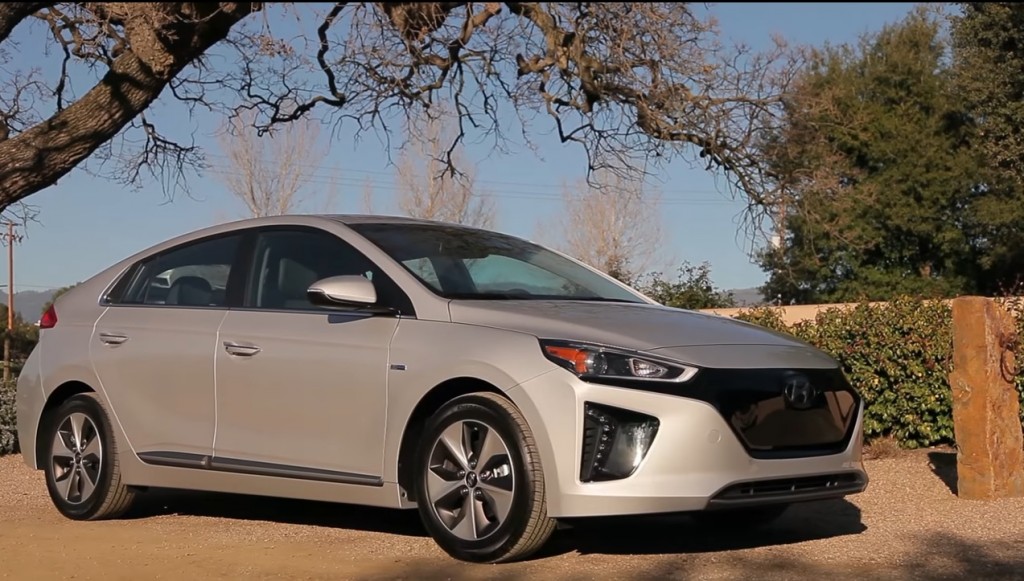
2017 Hyundai Ioniq Electric - frame from video road test
![2017 Smart Fortwo Electric Drive - first drive, Miami, Nov 2016 [photo: Jeff Jablansky] 2017 Smart Fortwo Electric Drive - first drive, Miami, Nov 2016 [photo: Jeff Jablansky]](https://images.hgmsites.net/lrg/2017-smart-fortwo-electric-drive--first-drive-miami-nov-2016-photo-jeff-jablansky_100583828_l.jpg)
2017 Smart Fortwo Electric Drive - first drive, Miami, Nov 2016 [photo: Jeff Jablansky]
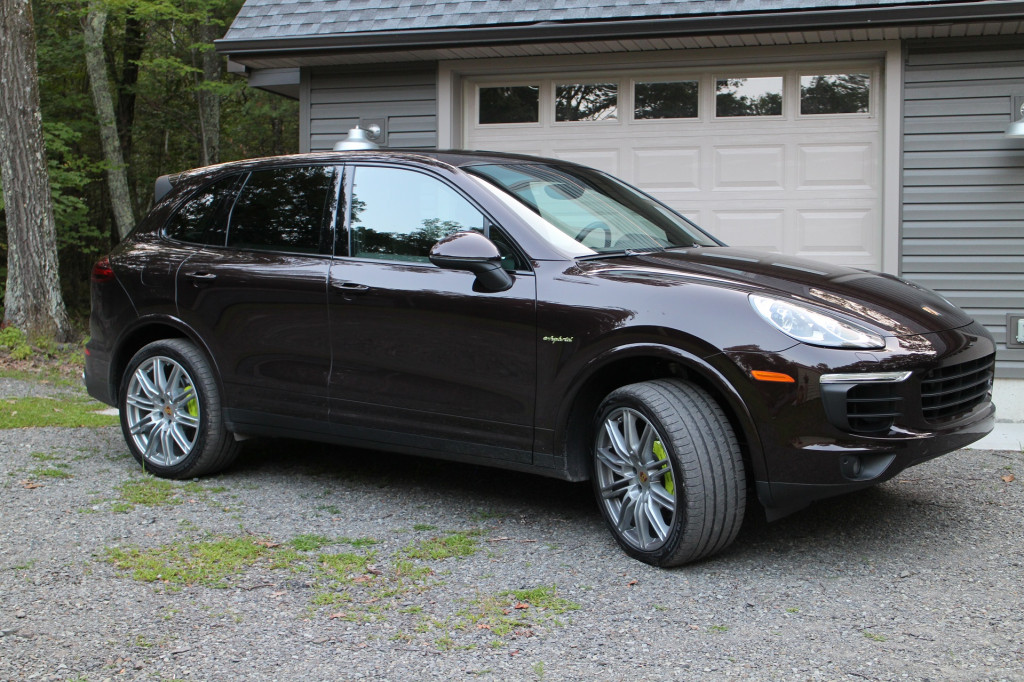
2017 Porsche Cayenne S E-Hybrid, Catskill Mountains, NY, Aug 2017
Take three cars that span the spectrum: Smart ForTwo Electric Drive, Hyundai Ioniq Electric, and Porsche Panamera S E-Hybrid.
Smart is sold by Mercedes-Benz, and Porsche has its own dealers.
In both cases, the brands have far fewer dealers than volume-car companies, so simply finding a place to buy one is harder to start with.
Affordable Smarts are a specialized car largely sold in cities, while pricey Porsches can carry six-figure sticker prices and dealers are found largely in affluent communities.

2018 Nissan Leaf
Hyundai, meanwhile, is only marketing and promoting the battery-electric version of the Ioniq compact hatchback in a handful of states, though it pledges the car is available for special order by any Hyundai dealer in the country.
Meanwhile, the Hyundai Ioniq Hybrid is by far the volume leader in the lineup and the version that gets all the marketing dollars.
For not only Toyota but also Ford, shoppers report that the company and its sales people in some regions continue to talk down the Prius Prime and Focus Electric.
While each car is nominally available in many areas, the reality may be that even if dealers have been certified to sell the cars, they may not keep them in stock or make them easily available for test drives.
Electric cars may sit at the back of the lot, salespeople may not know anything about them, or the dealer may not have sold one for months--meaning determined buyers may have to visit multiple dealers to buy one.

2017 Toyota Prius Prime Premium
More worrisome than you'd think
All of this concerns electric-car advocates just as it did in 2014. They suggest that happy talk about the many plug-in cars available often obscures the on-the-ground reality:
For huge numbers of buyers who don't live in California or the Northeast, there remain only a handful of electric-car options available.
While Tesla continues to garner huge attention for the success of its Model S in particular, the reality is that it's a luxury vehicle with a price starting at $70,000, or twice the average transaction price of new vehicles sold in the U.S.
MORE: New 2017 Nissan Leaf: More Details On New Styling, Range--And Infiniti Electric Too
The Tesla Model 3, meanwhile, is struggling into production (as previous Tesla cars have) and a new order placed today will likely take up to a year or perhaps longer to be fulfilled, depending where the buyer lives and which version is ordered.
A further challenge is that not everyone wants a compact hatchback, which defines both generations of Leaf, both generations of Volt, the newer Bolt EV, and the Ioniq Electric.
Also the Volkswagen e-Golf (on sale in only a handful of states), the BMW i3, and the Ford Focus Electric.
"I've been harping on this point and its ramifications publicly since 2011 at least," said advocate and consultant Chelsea Sexton: "As long as there are only three volume carmakers in the game, the market will inherently be limited."

'Revenge of the Electric Car' premiere: consulting producer Chelsea Sexton
No one single plug-in car
"Just as there is no single gas car for everyone, neither will there be a single plug-in--and for now, there are literally only one battery-electric vehicle (the Nissan Leaf) and one range-extended electric car (the Chevy Volt) under $50,000 available throughout the U.S."
The downsides to that reality are many: Analyst conclusions about market desire for, and viability of, plug-in electric cars is based largely on the sales of just a few models.
"While Leaf sales say a lot about the market appetite for the Leaf--or even perhaps for a compact electric car with 80 miles of range--the numbers say far less about the viability of electric cars in general," Sexton cautions.
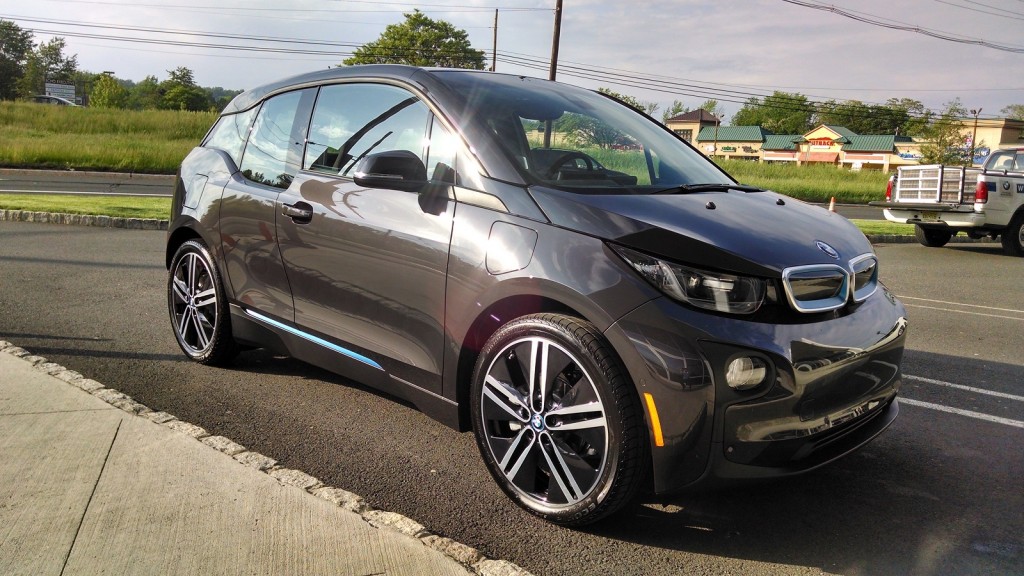
2014 BMW i3 REx range-extended electric car owned by Tom Moloughney - after delivery
More heads nodding
Three years ago, Sexton cited the only three electric cars—Leaf, Model S, Volt—offered nationwide, noting that the same three makers had electric cars on sale in 2010.
"Even that leaves out that in many places in the U.S.," she noted, "you'd have to buy a Tesla Model S sight unseen" unless you "traveled hundreds of miles to the nearest Tesla Store."
But Sexton suggests that industry and buyers alike are starting to recognize this limited reality.
"I see a lot more heads nod when I make such remarks these days," she said, three years ago.
Caveat emptor.
_______________________________________________













